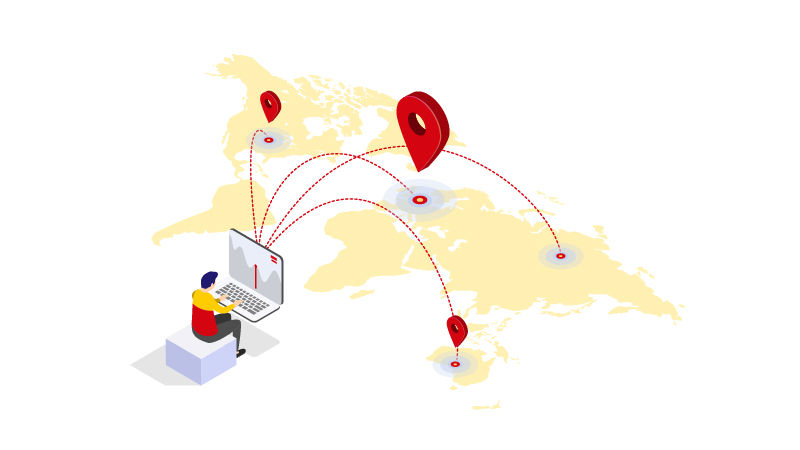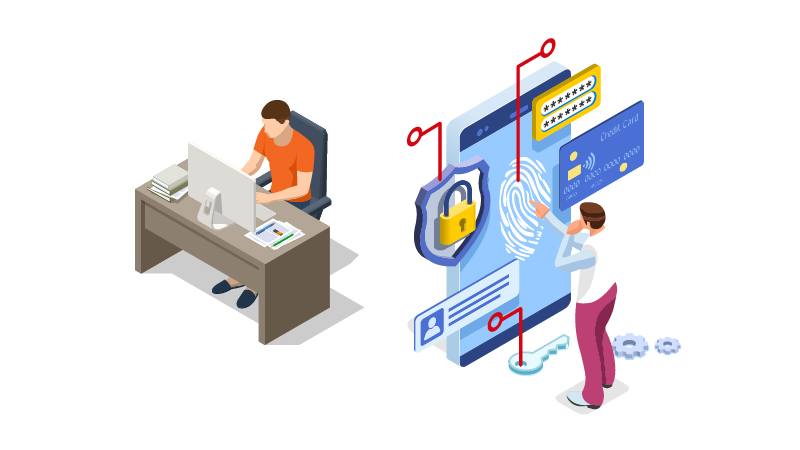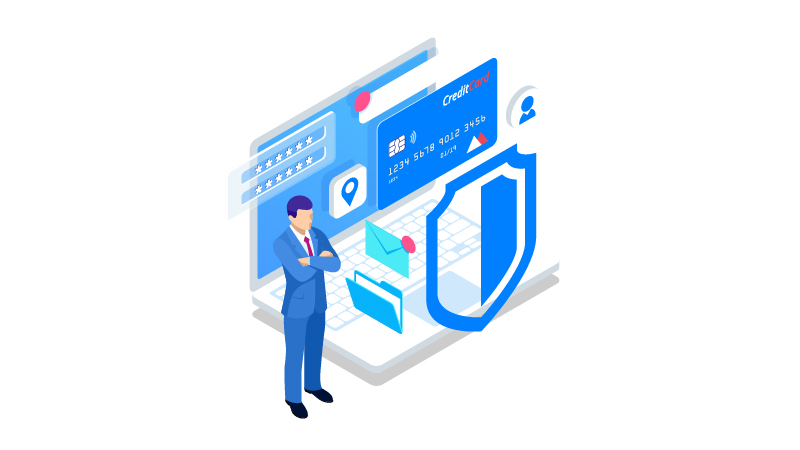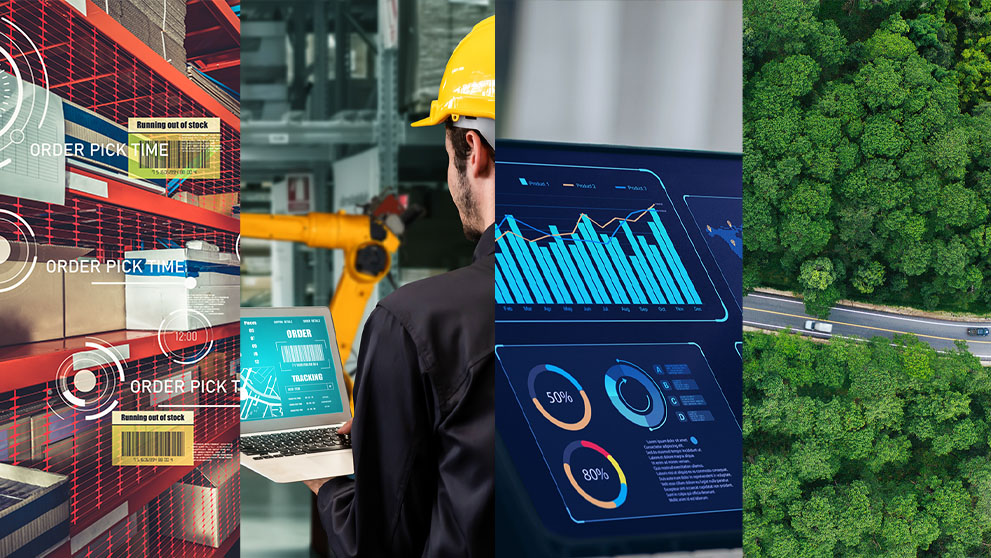In today’s digital world, supply chain security is now a leading priority for businesses within every industry. Yet, a global survey found the average number of supply chain breaches that negatively impacted organizations increased by 26% from 2022 to 20231.
In this article, Matthew West and Bryan Taaffe of DHL’s Global Financial and Professional Services unit unveil the ways fintech security has evolved to act as a blueprint for secure and reliable supply chains, and the specific best practices that can be carried across to other industries.
A new era of fintechs
Any breaches in the supply chain software used for managing logistics can have catastrophic and wide-ranging consequences. Safeguarding the flow of goods and sensitive data, whilst upholding safety and quality standards, relies on a range of processes, from data encryption to track and trace logistics. For businesses with global operations, navigating the intricacies of international trade regulations adds a further layer of complexity. Amidst this, there are many lessons the fintech industry can teach us about secure supply chains.
Research by McKinsey2 shows that revenues in the fintech industry are expected to grow almost three times faster than those in the traditional banking sector between 2023 and 2028. At DHL Express, we’ve witnessed a new generation of banks and financial services emerge in recent years – many as entirely digital enterprises. These fintechs are typically quick at decision-making and fast to scale as they bring new and innovative services to an audience hungry for elevated online experiences.
Yet with the growth of these “digital disruptors”, new challenges and risks arise. Our role as a secure logistics provider is to guide them through all aspects of fintech security, ensuring the protection of sensitive data and maintaining their trust with customers and partners.
Much of this starts with what we are best known for: speed. The faster a valuable item such as a credit card moves from A to B, the less risk there is that it’ll be intercepted by a fraudulent party. Our express service also benefits the fintech company; after all, the sooner a customer receives their card, the sooner they’ll start spending. This too applies to payment technology such as point-of-sale terminals for retailers, which is why the question for any business deliberating over express shipping should be, “What would we lose in revenue for each additional day our goods are in transit?”
This speed is combined with advanced track and trace logistics. DHL has less of a dependency on third parties than any of our main competitors; everything stays within our network which provides end-to-end visibility along the supply chain. When one of our fintech customers sends, for example, a payment card with DHL Express, they’ll benefit from a system that scans that item on average 28 times on its journey. The customer then receives real-time notifications about their shipment’s progress for reassurance.
We also have a Denied Party screening program in place – a crucial step that we’ve found fintechs sometimes overlook. Our software will scan the contact and address information on a shipment and run it against the applicable Denied Party lists of individuals and entities – i.e. those that applicable law prohibits or restricts the provision of economic resources to, or the engagement in transactions with, due to their involvement in illegal activities. The system’s advanced algorithm determines the risk, and where necessary, the shipment is halted whilst we seek further identification from the receiving entity to ensure they’re a safe party*.
Final-mile security
The last mile of our service is really the point at which secure e-commerce fulfilment is married with delivering our fintech customers’ end users an exceptional experience. This begins with ensuring accurate address data; our extensive database allows us to validate addresses so that sensitive documents and parcels are always delivered to the right address. Then there’s our On Demand Delivery service. This gives customers the flexibility and convenience of choosing exactly when and where their deliveries are made, with full tracking for peace of mind. The sender can also implement a “Direct Signature Required” stipulation for extra security.
The future of supply chain resilience
Whilst the finance sector has embraced digitalization, the fast, secure movement of sensitive documents and items remains essential to its day-to-day operations. In the early days of DHL, the founders delivered important documents for their banking clients personally, accompanying them on flights to ensure their safe delivery, whilst simultaneously launching the international express industry. Now, as the fintech sector has developed to adopt computers, IoT devices and AI software, DHL will continue to invest in cutting-edge security processes to negate supply chain risks.
Building a secure ecosystem: key security practices for your business’s supply chain

Leverage track and trace logistics
Having full visibility of goods as they move through your supply chain will reduce incidences of loss or theft. Track and trace technology automates this process, scanning the goods at crucial checkpoints right up to the moment they’re delivered to the intended recipient.

Prioritize secure data encryption
For online businesses, data encryption is a necessary step to prevent sensitive financial and customer data from being stolen. In simple terms, the process “scrambles” data into a code that can only be unlocked with a unique digital key. For SMEs, Google Chrome’s encrypting service is a good service to consider. Digital signatures and multi-factor authentication are further ways to protect data.

Create an incident response plan
Preparing for a worst-case scenario is important. Setting out an easy-to-implement response plan for the event of a data breach will help your business minimize reputational damage and revenue losses.

Adhere to global regulations
For businesses involved in cross-border transactions, complying with international trade regulations is crucial. Beyond customs and border rules, this also includes things like environmental initiatives, labor laws, and safety standards. Understanding and complying with these mitigates the risks of legal action and reputational damage, whilst safeguarding against theft, data breaches and unauthorized access.

Choose a trusted logistics partner
DHL Express has received 400 TAPA (Transported Asset Protection Association) certifications worldwide – one of the most rigorous logistics and supply chain security certifications. The independently audited authentication is widely respected as the leading security standard in this sector and focuses on the way in which high-value goods are handled, warehoused and transported. DHL Express is the global industry leader in terms of number of TAPA certified facilities, and our experts are ready to help your business implement the highest standards of supply chain security.
1 – Supply Chain Brain, December 2023
* DHL’s Denied Party screening is part of its internal Export Control and Sanctions Compliance Program which ensures DHL fulfils its legal obligations as a logistics service provider. DHL’s screening is not meant to replace the exporter/customer’s due diligence obligations to ensure compliance with the applicable sanctions and export control law.



















